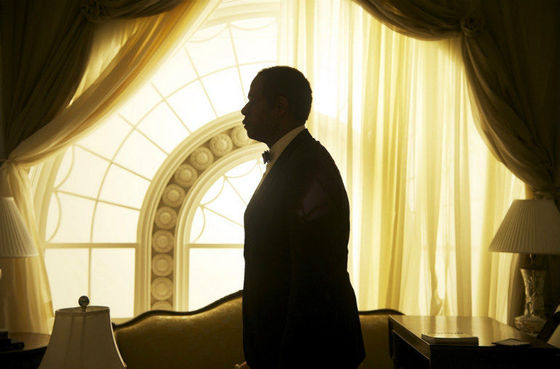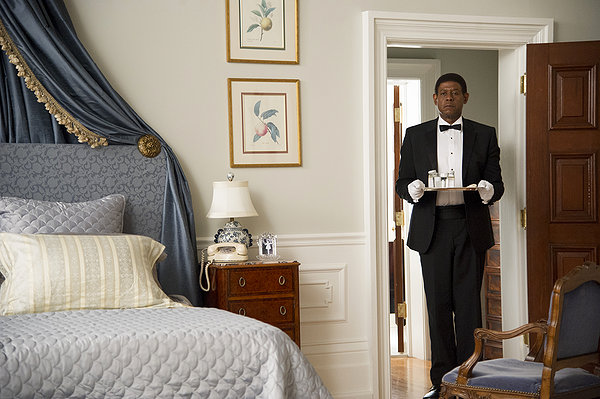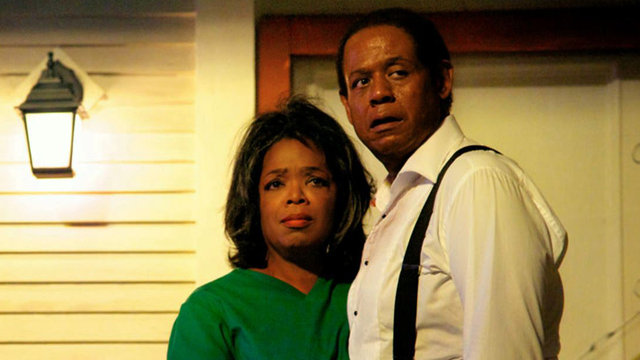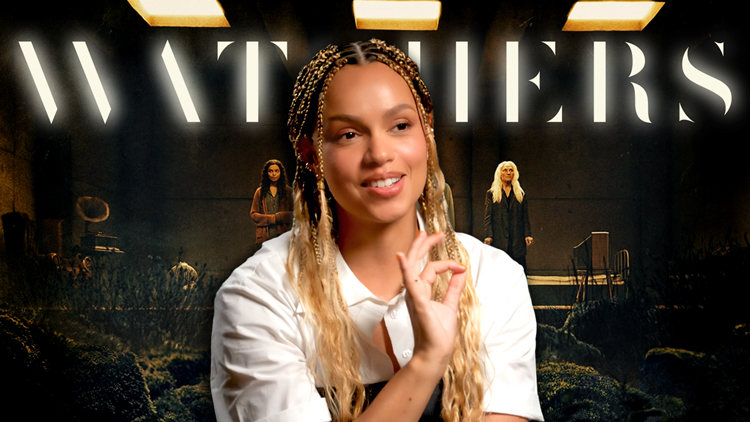
After the lurid sleaze-a-drama of “The Paperboy” last year, director Lee Daniels swung hard in the opposite direction to make a “statement picture” in a bid to purge the memory of that travesty. He needn’t have bothered. Even with Oscar winner Forest Whitaker and the omnipotent Oprah Winfrey in tow, Mr. Daniels’ “The Butler” is an unsavory American tapestry of racial and historical clichés that reveals the staggering limitations of his “talent.”
To say the Oscar-winning “Precious” was a fluke is not fair to what remains an impactful film. After witnessing “The Butler” and “The Paperboy,” it cements how the “Precious” ensemble of Mo’Nique, Mariah Carey, Paula Patton and especially Gabourey Sidibe did all the heavy lifting in that film. The women were sheer forces of nature of potent realism, elevating what was essentially movie of the week plotting. The squandered promise held by the concept of “The Butler” only refocuses attention on whether or not Daniels is flash in the pan.
Inspired by the post-Obama election euphoria in 2008, journalist Wil Haygood penned an intriguing article for the Washington Post titled “A Butler Well Served by This Election.” Haygood profiled Eugene Allen, a White House butler who served for 34 years, watching history unfold during the terms of Harry S. Truman to Jimmy Carter. The possibilities afforded by such a rich source of material were tailor made for Hollywood in the Obama era. Cue “The Butler.”
Penned by Emmy winner Danny Strong, who wrote the controversial Sarah Palin-themed “Game Change” for HBO, remixes Allen’s story to become the chronicle of Cecil Gaines (Forest Whitaker). As the titular, and fictional “Butler,” Gaines’ life is one of passivity, standing and serving politely while those around him lived out a heavier burden of the Black American experience, from segregation, to civil rights to Obama. The polarizing fact that Gaines is a study of servitude and survival is what should make the film that much more enlightening. Instead, Daniels’ heavy handedness only twists the emotional resonance of fact into melodrama and unnecessary slabs of the provocative.

You can hear, in moments, what moved screenwriter Strong most about the material. In fact, the best section of the film is when Gaines’ oldest son, Louis (David Oyelowo) begins his activist life in the South. From sit-in to freedom rides, the striking differences between the lives led by father and son only hints at what could have been for “The Butler.” Searing and moving, the sequence is a reminder of how far we’ve come and how much we still need to achieve in establishing true equality in this country.
Then “The Butler” devolves into a greatest hits package of American history, making the film feel so small. Bad enough the budgetary restraints on the production values alone fail to aid Daniels’ bid to create an intimate epic. The Gaines family feels less like real people, but political statements or sassy quips constantly going through the costume department. Then, there is the White House itself. It’s too many presidents and too many actors representing stunt casting, with fewer still allowed to create any kind of impact or connection. Only Liev Schreiber manages to break through some bad make-up and other liabilities as Lyndon B. Johnson. Worst performance? A tie between John Cusack as a dime-store Richard Nixon and Alan Rickman as Ronald Reagan as if he appeared in the first “Die Hard.”
Then you have Whitaker and Winfrey.
Cecil Gaines is not an easy role to process, a character with the added challenge of being in almost every scene. Whitaker is an actor of considerable skill and intelligence. But somehow his take on Gaines is less human and so still he almost becomes cryptic. It is a disappointing performance that actually lacks heart, which will make it hard for audiences to want to care about his sprawling journey.

Heart is not what hampers Winfrey as Gaines’ wife, Gloria. If anything, commend the media titan for trusting Daniels so implicitly to shed her benevolent image to become this hard drinking, chain smoking, and sexually vibrant woman. It’s a showy performance that counterpoints how much Whitaker is underplaying. But never do you get the sense of an actor truly inhabiting a role. Instead, you only see the all-mighty OPRAH wearing the most awesome pantsuit while dancing to Soul Train. You just can’t get past her celebrity. (Prepare to stifle a laugh when you hear her state, “I want to go to the White House!”)
Ultimately, what truly undermines “The Butler” is Daniels’ inability to sustain a consistent tone. It veers wildly from the morbid and violent, to comic and playful, with lurid undertones interspersed with melodrama and severity. One scene actually validated George C. Wolfe’s wicked satire “The Colored Museum,” which dared to parody Lorraine Hansberry’s “Raisin in the Sun” in a sketch titled “The Last Mama on the Couch Play.” But the comedy derived from a classic depiction of poverty and racism only gave such themes, and the source play, more depth and resonance. In “The Butler,” Gloria’s dramatic and physical outburst against her now Black Panther son feels on par with a Tyler Perry movie. Projecting a life against the backdrop of history is nothing new. But done well, you achieve a result like the still powerful “Autobiography of Miss Jane Pittman.” So botched is “The Butler,” it makes the late 1970s mini-series “Backstairs at the White House” seem like a halcyon memory.
You can’t fault Daniels’ ambition to take on a personal narrative projected against the canvas of American history. That he fails to give such important historical moments the respect and relevance they merit is outrageous. Instead, he diminishes the Black American struggle into this banal and shockingly crude exercise of the self-righteousness, not revolution. Given the current dialogue about race in this country, the time is now to truly examine our national identity as exemplified by Ryan Coogler’s powerful “Fruitvale Station.” If only the task was bestowed upon someone else who preferred nuance and insight to manipulation and shock value.
Fool us once, Lee Daniels, shame on you. Fool us twice, sir, shame on us.




